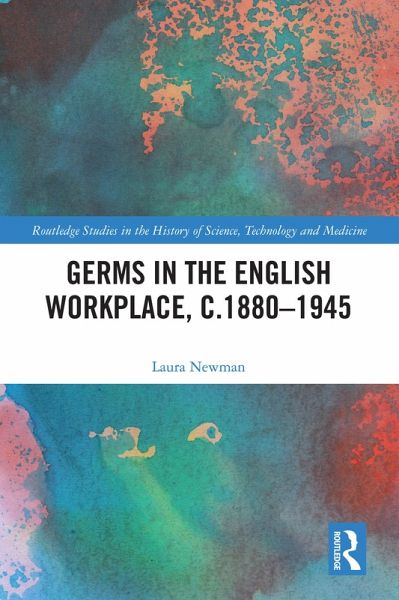
Germs in the English Workplace, c.1880-1945 (eBook, ePUB)
Versandkostenfrei!
Sofort per Download lieferbar
42,95 €
inkl. MwSt.
Weitere Ausgaben:

PAYBACK Punkte
21 °P sammeln!
This book looks at how the workplace was transformed through a greater awareness of the roles that germs played in English working lives from c.1880 to 1945. Cutting across a diverse array of occupational settings - such as the domestic kitchen, the milking shed, the factory, and the Post Office - it offers new perspectives on the history of the germ sciences. It brings to light the ways in which germ scientists sought to transform English working lives through new types of technical and educational interventions that sought to both eradicate and instrumentalise germs. It then asks how we can ...
This book looks at how the workplace was transformed through a greater awareness of the roles that germs played in English working lives from c.1880 to 1945. Cutting across a diverse array of occupational settings - such as the domestic kitchen, the milking shed, the factory, and the Post Office - it offers new perspectives on the history of the germ sciences. It brings to light the ways in which germ scientists sought to transform English working lives through new types of technical and educational interventions that sought to both eradicate and instrumentalise germs. It then asks how we can measure and judge the success of such interventions by tracing how workers responded to the potential applications of the germ sciences through their participation in friendly societies, trade unions, colleges, and volunteer organisations. Throughout the book, close attention is paid to reconstructing vernacular traditions of working with invisible life in order to better understand both the successes and failures of the germ sciences to transform the working practices and material conditions of different workplaces. The result is a more diverse history of the peoples, politics, and practices that went into shaping the germ sciences in late nineteenth- and early twentieth-century England.
Dieser Download kann aus rechtlichen Gründen nur mit Rechnungsadresse in A, B, BG, CY, CZ, D, DK, EW, E, FIN, F, GR, HR, H, IRL, I, LT, L, LR, M, NL, PL, P, R, S, SLO, SK ausgeliefert werden.













